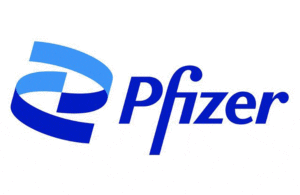 In the midst of a global pandemic, Pfizer, under the leadership of its chief digital and technology officer Lidia Fonseca, achieved what was once thought impossible. The company, with the partnership of BioNTech, developed a COVID-19 vaccine in only 269 days, a process that traditionally would have taken 8 to 10 years. While prior research on mRNA and coronaviruses contributed to that breakthrough, its digital focus was another driving force.
In the midst of a global pandemic, Pfizer, under the leadership of its chief digital and technology officer Lidia Fonseca, achieved what was once thought impossible. The company, with the partnership of BioNTech, developed a COVID-19 vaccine in only 269 days, a process that traditionally would have taken 8 to 10 years. While prior research on mRNA and coronaviruses contributed to that breakthrough, its digital focus was another driving force.
How the pandemic sharpened Pfizer’s digital focus
A digital transformation initiative launched before the outbreak of the pandemic helped the company accelerate its drug discovery and development capabilities. Then, the COVID-19 pandemic hit, further serving as a catalyst for its digital ambitions. Lidia Fonseca, Pfizer’s chief digital and technology officer, reflected on this journey at the AWS Re:Invent conference, last week, noting how digital data and AI are pivotal to its operations, which it has applied across all business units, 36 plants, and in 149 markets.
“Pfizer is experiencing an exciting period of innovation and growth with the launch of 19 medicines and vaccines in 18 months,” Fonseca said. “Digital data and AI are critical to our success.”
And while COVID-19-product-related revenues have recently forced the company to undertake cost-cutting measures, its digital transformation initiatives have unlocked a host of efficiency gains in recent years. For instance, a shift to AWS cloud computing saved Pfizer $47 million annually and facilitated the exit from three data centers, cutting CO2 emissions by 4,700 tons, Fonseca noted.
Rethinking vaccine development timelines
The company also credits its digital investments with helping it develop its COVID-19 vaccine with partner BioNTech in a mere 269 days, a process that typically spans 8-10 years. “This normally takes eight to 10 years,” Fonseca noted. Computation resources provided through its alliance with AWS, in particular, accelerated manufacturing and clinical trials.
Fonseca also highlighted that an implementation of a digital operations center led to manufacturing efficiency progress while also touching on cloud-based initiatives to fuel collaboration. “In 2019, Pfizer and AWS created a scientific data cloud that aggregates multimodal data from hundreds of laboratory instruments empowering our scientists to search through all historical molecular and compound data in real-time compared to weeks or months in our previous fragmented environment,” she said. Fonseca noted that this scientific data cloud accelerates analysis and computational research while tapping AI algorithms to help identify and design the most promising new molecules.
The company’s experience helping to develop a COVID-19 in record time also contributed to its initiative to redefine what fast means, as another Pfizer exec told us.
A massive cloud migration
In 2021, Pfizer ramped up its cloud investment. Before embarking on a massive cloud migration initiative, about 10% of its infrastructure was in the cloud. After it, 80% was. “We moved 12,000 applications and 8,000 servers in 42 weeks — one of the fastest migrations for a company our size,” Fonseca said.
This transition saved the company $47 million a year, Fonseca noted, curbing its data center footprint and leading to a reduction of 4,700 tons of CO2 emissions, equivalent to the annual energy use of 1,000 homes.
Taking advantage of cloud elasticity and scalability
The transition also shortened the time to set up computing capacity from months to hours, “speeding up data generation for drug submissions by 75%.”
Pfizer also invested in supercomputing capabilities that slashed computation times for complex calculations and scientific simulations by 80% to 90%, as Fonteza has shared with McKinsey. “This is helping our scientists to fast-track compounds such as our COVID-19 oral treatment,” she said.
The cloud migration also enabled the company to weather the pandemic wrought by the pandemic, helping scale the company “into tens of thousands of additional cores in the cloud, accelerating manufacturing and clinical trials,” Fonseca said.
Ultimately, Fonseca emphasized that digital transformation initiatives must be a core part of business strategy, not just an add-on. As she told McKinsey in 2021, “It’s not about creating a digital strategy for our business but about creating a business strategy for a digital world.”
Filed Under: clinical trials, Data science, Drug Discovery, machine learning and AI



